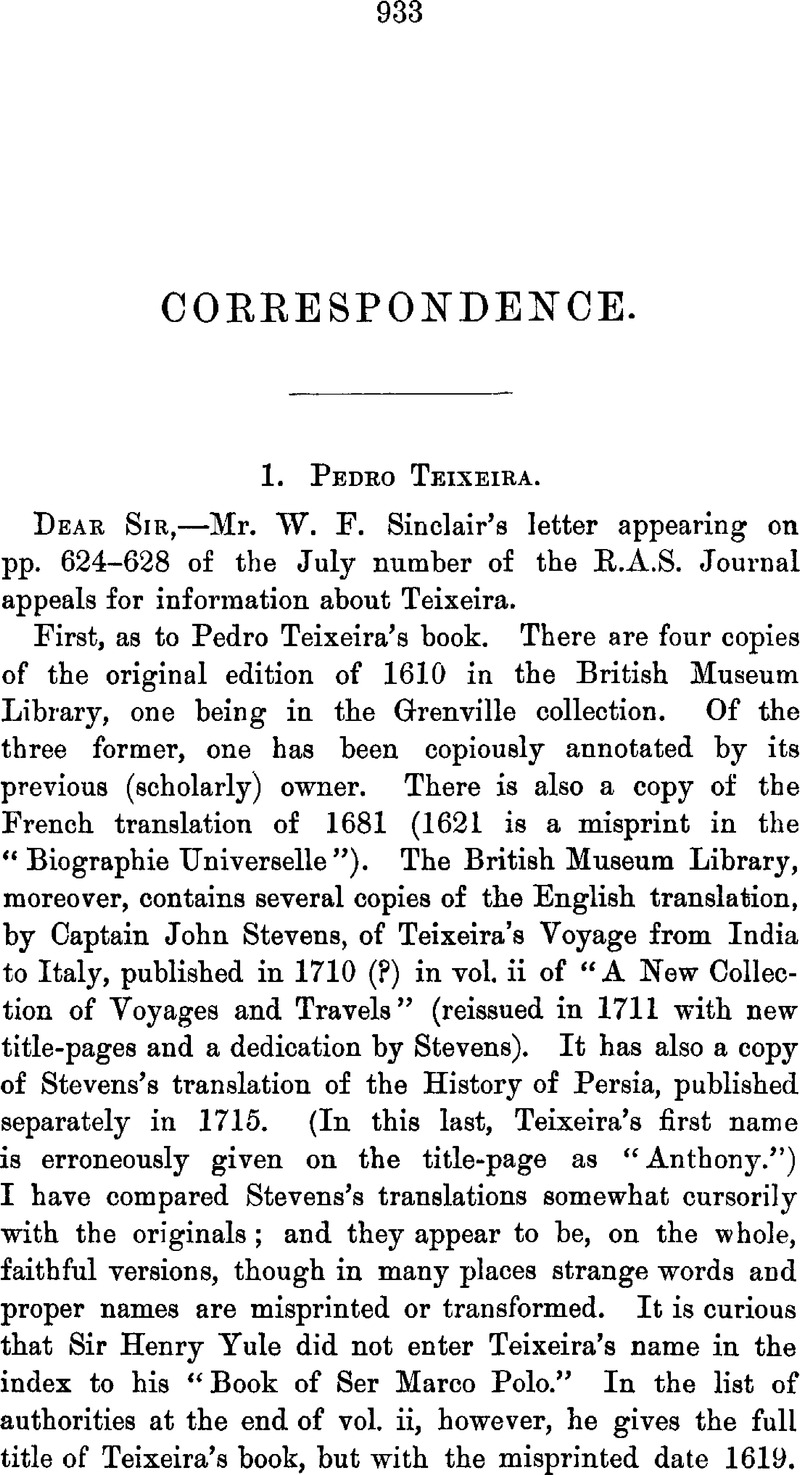No CrossRef data available.

page 934 note 1 It is evident that the quotations from Teixeira in “Hobson-Jobson” were made by Dr. Burnell, all being translations from the original Spanish. Dr. Burnell includes Teixeira's work in his “Tentative List of Books and some MSS. relating to the History of the Portuguese in India Proper.” MrGray, Albert, in his translation of Pyrard (Hakluyt Society), vol. ii, part 1, p. 242Google Scholar, note, also refers to the Relaciones. The late MrTiele, P. A., in his “Mémoire Bibliographique sur les Journaux des Navigateurs Néerlandais” (p. 255, note)Google Scholar, says that the additional matter relating to Persia, Ormuz, etc., inserted after Hendrick Hagenaer's travels in Commelin's collection, was probably compiled by Commelin, chiefly from Teixeira's work, the title of which he quotes.
page 934 note 2 Dr. Kayserling refers to the fact that there were several noted men of this same name; and this is also pointed out in a footnote on p. 59 of the “Viaje del capitán Pedro Teixeira aguas arriba del rio de las Amazonas (1638–1639),” by Mancos Jimenez de la Espada (Madrid, 1889); but, in spite of this, the British Museum Library Catalogue enters this last book with the works of our author.
page 937 note 1 Cf. “Hobson-Jobson,” s.v. ‘Mort-de-chien.’
page 938 note 1 Apparently with the fleet under the command of Lourenc, o de Brito, which left Goa on September 24, 1597, for Malacca, on receipt of the rumour of an intended attack by the Dutch on that place. (See De Couto, Dee. xii, liv. i, caps, vii and xii.)
page 939 note 1 His derivations of words and names are, as might be expected, sometimes amusingly incorrect. For instance, he speaks of “Coromandel, or Coro Bandel, signifying the Port of Rice, because of the great Quantities shipp'd off there for other Ports.” Yule quotes this in his “Hobson-Jobson” (p. 198), and says: “He apparently compounds (Hind.) chaul ‘cooked rice’ (!) and bandel, i.e. bandar (qq.v.) ‘harbour.’ This is a very good type of the way etymologies are made by some people, and then confidently repeated.” I think that it was not Hind, chaul, but Tamil cöru (boiled rice), that Teixeira had in his mind. Similarly absurd is De Couto's explanation of “Batecalou” (Batticaloa) as “the kingdom of rice.”